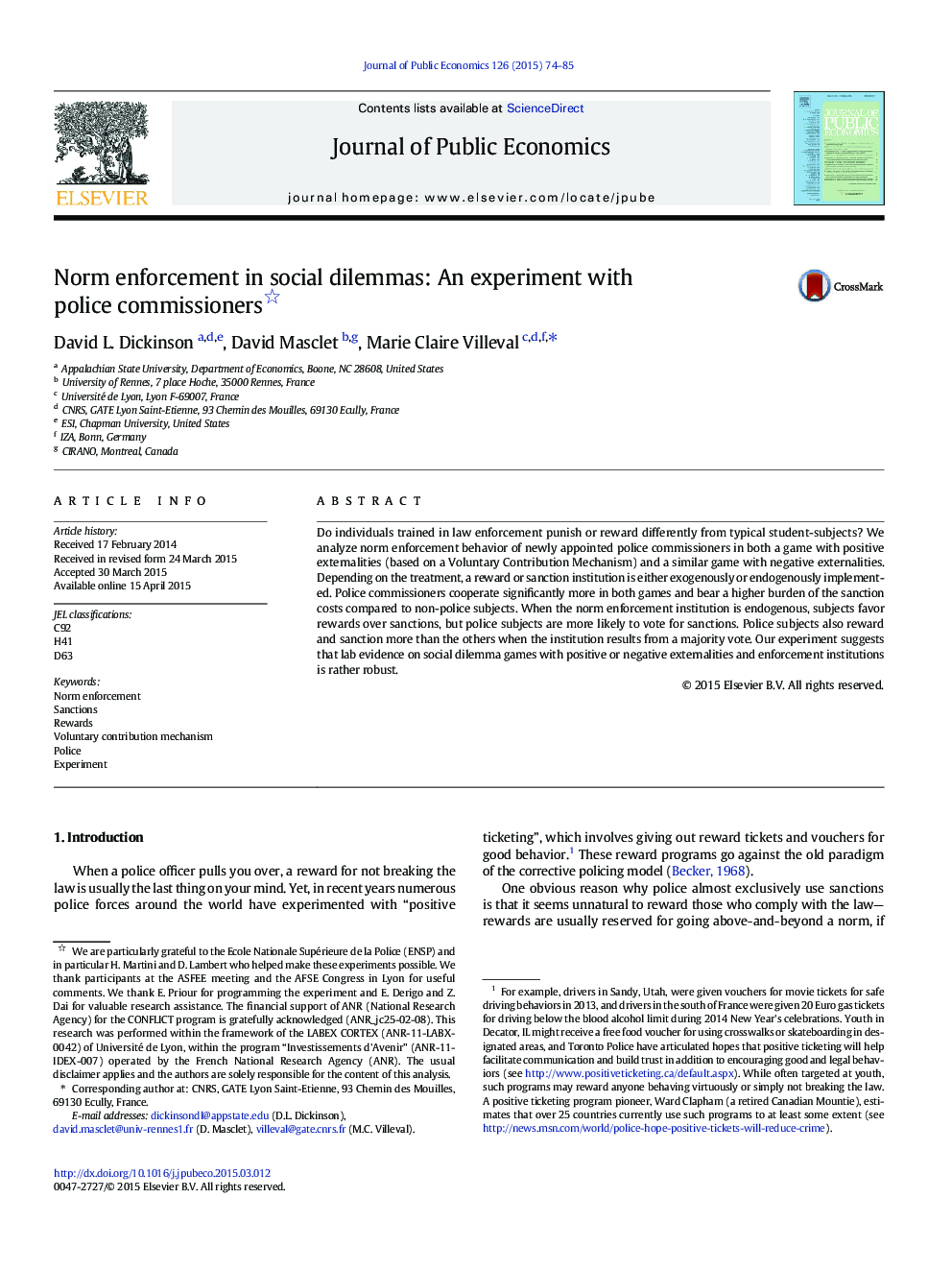| Article ID | Journal | Published Year | Pages | File Type |
|---|---|---|---|---|
| 969008 | Journal of Public Economics | 2015 | 12 Pages |
•We study norm enforcement in the context of social dilemmas, using a Giving Game and a Taking Game.•A sample of police commissioner subjects is compared to typical student subjects.•Police subjects cooperate more and punish more than non-police, ceteris paribus.•Subjects prefer rewards to enforce norms, but police are more likely to vote for sanctions compared to other subjects.•Police subjects reward and sanction more than others when the institution results from a majority vote.
Do individuals trained in law enforcement punish or reward differently from typical student-subjects? We analyze norm enforcement behavior of newly appointed police commissioners in both a game with positive externalities (based on a Voluntary Contribution Mechanism) and a similar game with negative externalities. Depending on the treatment, a reward or sanction institution is either exogenously or endogenously implemented. Police commissioners cooperate significantly more in both games and bear a higher burden of the sanction costs compared to non-police subjects. When the norm enforcement institution is endogenous, subjects favor rewards over sanctions, but police subjects are more likely to vote for sanctions. Police subjects also reward and sanction more than the others when the institution results from a majority vote. Our experiment suggests that lab evidence on social dilemma games with positive or negative externalities and enforcement institutions is rather robust.
